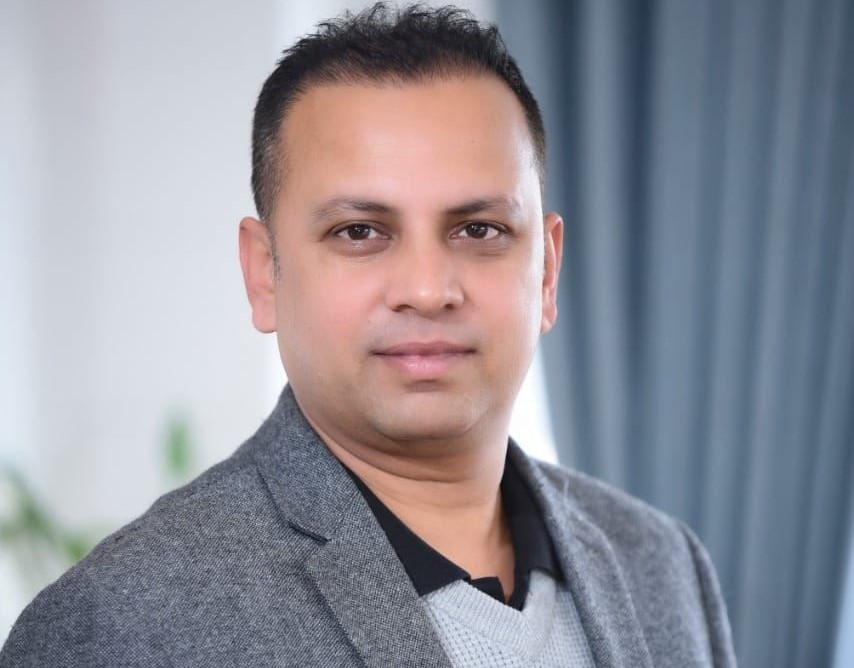KATHMANDU: Lawmaker Manish Jha is not satisfied with the current performance of the Federal Parliament and staunchly advocates for developing it as a forum for effective legislation and national debate.
The MP from the Rastriya Swatantra Party (RSP) is known as a person who puts his views in a candid and logical manner during parliamentary deliberations.
He has been juggling between his professional and political career adeptly.
This is the first time he is in the role of a lawmaker after being elected by his party to the House of Representatives on a proportional representation quota.
The RSP, a newly-emerged political force in the country, is on a mission of sanctifying the country’s politics and establishing good governance.
As such, lawmaker Jha differs on some of the practices and the working style of the present parliament.
Talking to RSS, he said that rather than making the parliament confined to only its ritualistic functions, it should be developed into a body having policy-level impact.
“Rather than making the parliament as a body through which the lawmakers speak on matters of public importance merely as a ritual to ‘show’ to the people that they are raising issues of public concern, the parliament should adopt practices with the goal of making policy-level impacts,” he stressed.
He is also not happy with the practice of some lawmakers getting ‘unlimited time’ to speak in parliament.
“Even these days, the former Prime Minister comes to the parliament and makes a statement for up to three and half hours. I do not understand why he is given so much time when the topic could be completed in 15 minutes,” he said.
Lawmaker Jha also shared an incident in which a lawmaker asked his fellow lawmaker what the former PM was talking about when he was done with his ‘long and tedious’ sermon.
Jha, who has completed Masters level studies, has more than 15 years’ experience of working in the advertising, management, policy advocacy and market research sectors.
“I had the zeal of carrying out many works as an MP at the time of taking oath on December 22, 2022. From the encouragement that I got from all sides, I had felt that my responsibility has increased. However, this enthusiasm was dampened by the changing political equation that developed after some time of the oath-taking,” lawmaker Jha said.
He said there is a lack of study and serious thinking on the part of majority of lawmakers.
“The lawmakers should be the role models for all. There are some exemplary MPs, but they are in few numbers. It must be only 25 out of 275 total lawmakers in parliament,” he added.
Lawmaker Jha opined that a practice of giving ‘assignment’ to the members of parliament should be started.
Lawmakers should make adequate study and they should be given assignment on legislation and policy matters even for respecting the people’s valuable votes based on which they have been elected.
“Getting elected to the parliament and having adequate knowledge on any particular subject are different.
The lawmakers should be serious and conscious as to how one can contribute in making the laws and policies on a certain topic richer,” he suggested.
Also the member of the Public Account Committee of the parliament, Jha underscored the need of replicating the PAC’s ‘good practices’ in the parliament as well. “I forget my party while attending the Committee meetings. Likewise, we should forget our party in the meeting of the parliament’s full meeting. We should forget the party leaders and take into account the policy,” he added.
The House can be made more effective only if the parliamentary deliberations and practices are made rich and rigorous, he said.
He reminded that that the parliament has a role not only in making laws, but also in holding the government accountable to the people.
According to him, the ruling parties demonstrated the ego of their majority in parliament even on matters pertaining to making laws.
Lawmaker Jha complained that the people’s aspirations and voices were not getting space in the parliament.
At the same time, he stressed that it is the responsibility of the parliamentarians to instill hope and trust among the people by removing the ‘political frustration’ in them.









Comment